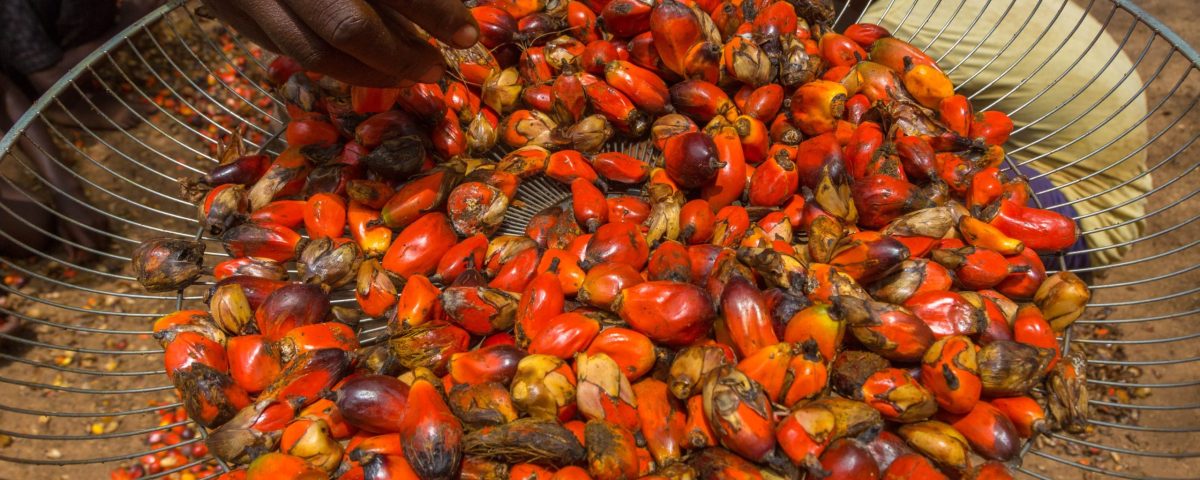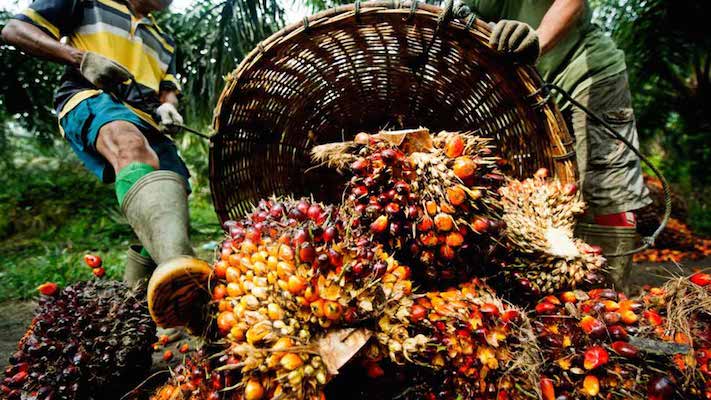
Tech Cabal Insights releases its State of Tech in Africa Summary Report for 2023
February 29, 2024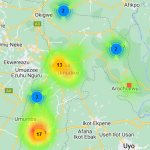
Niger Delta Weekly Conflict Update: February 25 – March 02, 2024
March 1, 2024Before the era of crude oil, Nigeria’s economy thrived on agricultural exports, with palm oil playing a central role. Palm oil, derived from the fruit of oil palm trees (scientifically known as Elaeis guineensis), served various purposes, including soap and cosmetics production, biofuels, and food processing. It was a key export commodity dating back to 1558 and dominated Nigeria’s exports for an extended period.
European awareness of palm oil dates back to the 15th century; however, it was the Liverpool and Bristol slave traders who initiated more substantial imports during the early 19th century. Having recognized its diverse applications in West Africa, these traders had been purchasing palm oil as a staple food for slaves destined for the Americas. Consequently, the oil palm species also made its way to Martinique through the slave trade, receiving its official botanical designation as Elais Guineensis Jacq. in the botanical records of French botanist Nikolaus Joseph von Jacquin’s Selectarum Stirpium Americanarum Historia (1763).
The Niger Delta region, also referred to as the Oil Rivers, was the primary Hub of palm oil production and export. This region’s success in the palm oil trade contributed significantly to early Nigeria’s economy and helped lubricate Britain’s Industrial Revolution, which drove demand for the product.
Palm oil was used as an industrial lubricant, in tin-plate production, street lighting, and as material for candle making and soap production. By the 1830s, British purchases of palm oil in western Africa, mostly from the Niger Delta region of present Nigeria, were worth nearly $2 million a year, with the region accounting for about nine-tenths of this. Interestingly, the most prosperous British trade was developing on a part of the coast where British shipping had been paramount when the British slave trade had been abolished in 1807.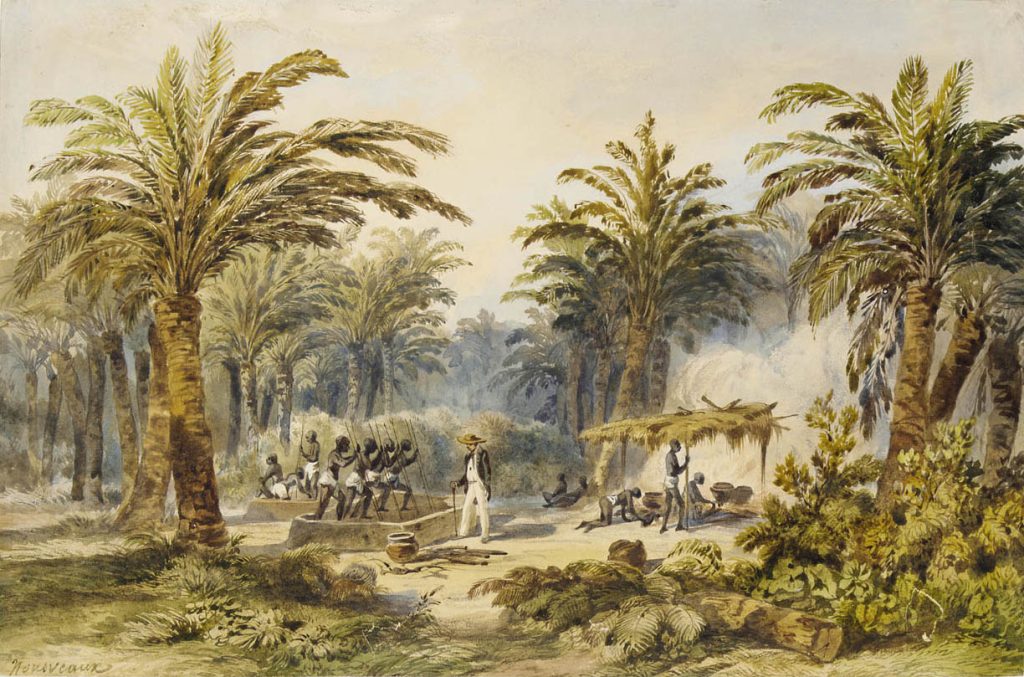
The merchants of the Niger Delta city-states had quickly adapted themselves to offering palm oil as an alternative export to slaves because canoe transport was thus easier and cheaper than head loading or cask rolling, and the Niger Delta Region afforded a ready-made system of waterways to accomplish an efficient exportation system for this product. There were several dozen trading stations in the Oil Rivers area of today’s Niger Delta – the heartland of the West African palm oil trade with European traders operating from trading ships due to fear of tropical diseases and trade restrictions imposed by local chiefs who controlled access to the hinterlands where palm oil was sourced.
The booming trade led to the rise of local influential houses and kingdoms but was not without major territorial rivalry as a result of a quest for dominance and an increased desire to be the top supplier of Palm Oil for export use at that time. The Canoe House system established also served other useful purposes such as coordinating trade with the interior as well as with foreign traders.
In effect, the house was the basis for the conduct of trade relations as each house had its markets and thus enjoyed the monopoly. For instance, the rivalry between Alali and Pepple royal houses in Bonny led to a civil war in 1855 which weakened the city-state. It was in the same Bonny that King Jaja withdrew his House and founded another state of Opobo in 1870. In Kalabari, the Amachree dynasty broke away to establish the state of Buguma while their rivals, Barboy House further split into two to establish the kingdoms of Abonnema and Bakana.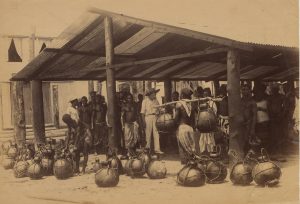
The struggle for control of this trade also led to direct conflict between European Traders and local rulers, notably leading to conflict and exile of rulers such as Nana Olumo of Itsekiri and King Jaja of Opobo.
Currently, palm oil production in Nigeria is still concentrated in the Niger Delta region, with small-scale farmers contributing about 80% of the total production. However, despite its historical dominance, Nigeria has become a net importer of palm oil due to neglect in the sector. Domestic production, nearly 900,000 tons, falls short of demand, resulting in an annual deficit of about 500,000 tons. This gap, valued at 200 billion naira, is met through imports.
The decline in palm oil production began amidst the Crude oil boom of the 1970s, leading to abysmally low levels of output compared to other Asian-producing countries in which plantations were developed during a period of West African dominance to meet the growing global demand. Nigeria, once the world’s leading producer and exporter, now contributes less than two percent of global output. With a population exceeding 197 million people, Nigeria consumes approximately 3 million metric tons of fats and oils annually, with palm oil accounting for about 45 percent of total consumption in 2018.
The neglect of palm oil production has led to a decline in economic prosperity and agricultural development in Nigeria and the Niger Delta region. However, despite Nigeria’s historical dominance in palm oil production, the sector has faced challenges in recent years. Neglect and lack of investment have led to a decline in production, with Nigeria now importing palm oil to meet domestic demand.
This decline has had adverse effects on economic prosperity and agricultural development, particularly in the Niger Delta region. To revitalize the palm oil industry and reduce dependency on crude oil, concerted efforts are needed. The Nigerian government, along with stakeholders, must prioritize investment in research, infrastructure, and capacity building within the agricultural sector. Initiatives like the Nigerian National Oil Palm Policy aim to address these challenges, but effective implementation and monitoring are essential. A platform dedicated to driving these policies, such as the proposed Nigerian Oil Palm Council, can ensure the industry’s sustainable development. By refocusing attention on palm oil cultivation and investing in essential support systems, Nigeria can reclaim its position as a global leader in palm oil production, fostering economic growth and sustainable development.
An organization within the Niger Delta, the Foundation for Partnership initiatives in the Niger Delta(PIND), is carrying out an intervention to assist the smallholder palm oil farmers and processors in the sector, within the Niger Delta to increase the quantity and quality of their palm oil outputs and increase their sales to earn more income and create new jobs. Initiatives such as this should be encouraged to facilitate an economic revival within the Niger Delta and improved livelihoods through the palm oil value chain.
For more information on PIND’s initiative driving the revitalization of the palm oil industry, visit https://pindfoundation.org/project/palm-oil-value-chain/.
To learn more about this subject, Read this insightful article on the history of Palm Oil trade in West Africa https://chinadialogue.net/en/food/red-gold-a-history-of-palm-oil-in-west-africa/


